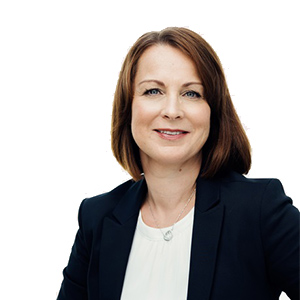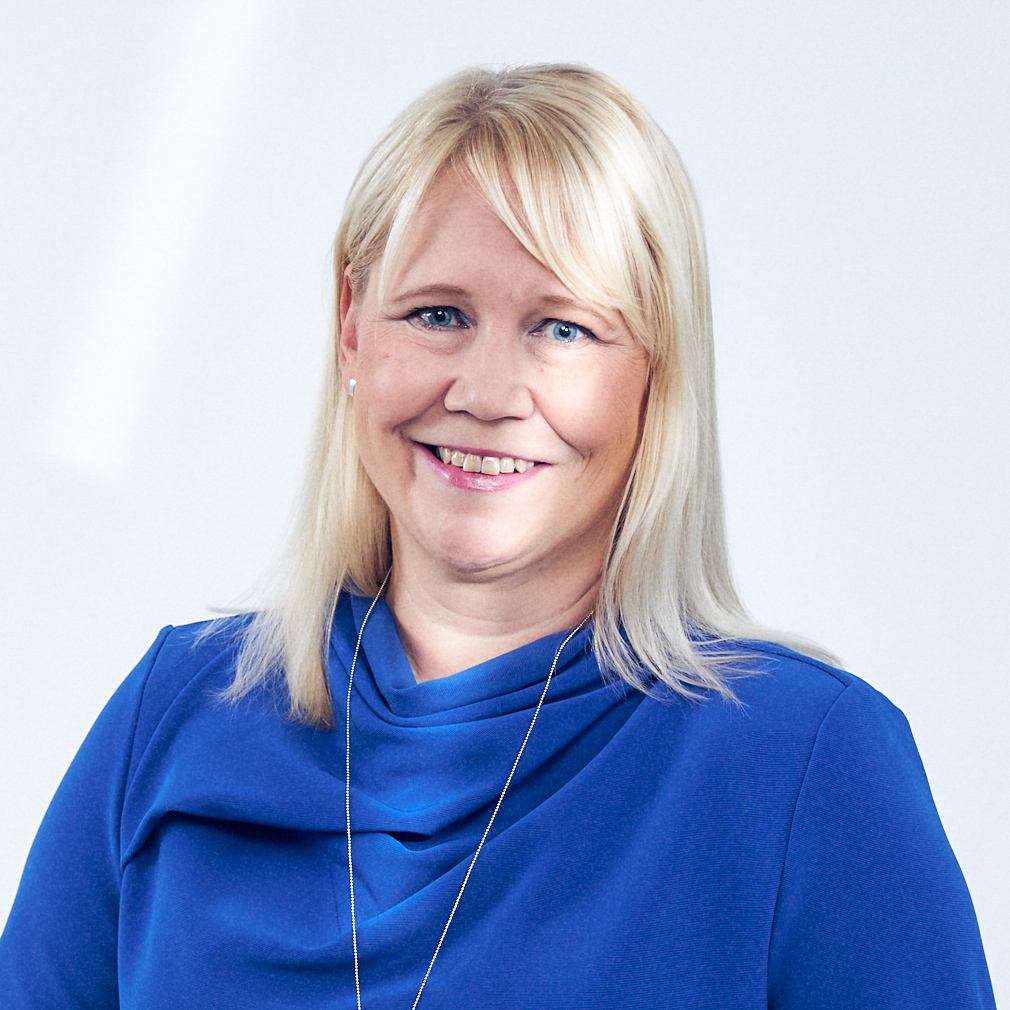Board of Directors
Members of the Board of Directors

Tapio Pajuharju
Born 1963, M.Sc. (Econ.)
Finnish citizen
Chairperson of the Board (2019–), Board member (2017-)
Independent of Eezy and its major shareholders
Work experience
Kamux Oyj, CEO (2023-)
Harvia Group, CEO (2016–2023)
Oy Hartwall Ab, CEO (2014–2016)
Lumene Oy, CEO (2004–2014)
Huhtamäki Group, several management positions (1988–2004)
Board memberships
Saunamax Oy (2017–)
Overlandpark Oy (2011–)
Walki Group Oy (2016–)
Harvia Oy (2014–2016)
Halti Oy (2012–2014)
SM-Liiga Oy (2013–2017)

Maria Pajamo
Born 1972, Master’s in Psychology, certified psychologist
Finnish citizen
Member of the Board (2023–)
Independent of Eezy and its major shareholders
Work experience
ISS Finland, Chief People & Culture Officer (2021-)
Efima, Head of Human Resources (2020-2021)
Esperi Care, Head of Human Resources & Communications (2018-2020)
Fazer Bakery & Confectionery, Head of Human Resources (2012-2018)
KPMG, Head of People (2005-2012)
Board memberships
Kiinteistötyönantajat ry, Chairperson of the Board (2024-)
Confederation of Finnish Industries EK, board member (2024-)
Kiinteistötyöntantajat ry, board member (2022-2023)
Central Chamber of Commerce, Work, education and skills committee member (2023-)

Paul Savolainen
Born 1976, vocational qualification in information technology, Further Qualification for Entrepreneurs
Finnish citizen
Member of the Board (2017–)
Independent of Eezy
Dependent on a major Eezy shareholder
Work experience
SVP-Invest Oy, CEO (2008–)
Meissa-Capital Oy, CEO (2013–2022)
Board memberships
SVP-Invest Oy (2009–)
Meissa-Capital Oy (2013–2022)

Mika Uotila
Born 1971, M.Sc. (Econ.)
Finnish citizen
Member of the Board (2017–)
Independent of Eezy
Dependent on a major Eezy shareholder
Work experience
Sentica Partners Oy, CEO (2007–)
Sentica Partners Oy, Investment Director and Partner (2004–2007)
Sentio Invest Oy, Investment director and Partner (2002–2004)
Sonera Oy and Sonera SmartTrust Oy, several specialist and management positions (1995–2001)
Board memberships
HLRE Group Oyj (Vesivek Group) (2020-)
Hohde Group Oy (2022-)
Coptersafety Group Oy (2021-)
Verkanappulat, Group companies (2018-)
Kolmen Kaverin Jäätelö, Group companies (2021-)
Eezy Oyj (2017-)
Func Food Finland Oy (2014–2019)
Solteq Oyj (2015–2021)
Pihlajalinna Oyj (2009–2016)

Kati Hagros
Born 1970, M.Sc. (Eng.) and M.Sc. (Soc.)
Finnish citizen
Member of the Board (2019–)
Independent of Eezy and its major shareholders
Work experience
Aalto University, Chief Digital Officer, 2016–
KONE Corporation, SVP, Digitalization Strategy, Service Business, 2015–2016
KONE Corporation, SVP, Development, and CIO, 2010–2015
Nokia Corporation, Vice President, IT, Finland and the UK, 2007–2009
Nokia Corporation, Vice President, Quality, Finland and the UK, 2004–2007
Nokia Mobile Phones, Finland and Asia-Pacific, various positions, 1997–2004
Board memberships
S-Pankki Oyj (2023-)
Rantalainen Oy (2023-)
A-Insinöörit/AINS Group Oy (2021-)
Fintraffic Tie Oy (2021-2023)
Siili Solutions Oyj (2016-2023)
Tokmanni Oyj (2016-2020)
Nixu Oyj (2014-2023)

Tomi Laaksola
Born 1982, Field of study: Business (ABT)
Finnish citizen
Member of the Board (2024–)
Dependent on Eezy and its major shareholder
Work experience
Eezy Plc, Director of Talent Acquisition, February 2023 – October 2024
Eezy Plc, Strategic Projects, September 2021 – January 2023
Eezy Plc, Director of Personnel Services, September 2019 – August 2021
Smile Henkilöstöpalvelut Plc, Service Director, June 2018 – August 2019
Jobio Henkilöstöpalvelut, Co-founder and Business Manager, January 2008 – May 2018
Board memberships
Oy Jobinvest Ltd, Chairman of the Board, since February 2012
Oy Sailer Research & Development Ltd, Board Member, since June 2017
Sähköasennus Pohjanmaa Ltd, Chairman of the Board, since July 2023
Ouca Bikes Ltd, Chairman of the Board, since January 2023

Mikko Wirén
Born 1972, Lic.Med.
Finnish citizen
Member of the Board (2022-)
Independent of Eezy and its major shareholders
Work experience
Founded Pihlajalinna 10/2001
Pihlajalinna, CEO 2001-2016
Pihlajalinna, interim CEO 3-9/2023
General and occupational health physician 2001–
MWW Yhtiö Oy, CEO since 2004
Board memberships
Member of the Ski Federation’s board since 4/2024
Member of Pihlajalinna’s board and the Sustainability and Human Resources Committee since 9/2023
Full-time Chairman of the Board of Pihlajalinna 2016 – 3/2023
Duties of the Board of Directors
The duties and operating principles of the Board of Directors are based on Finnish law, particularly the Limited Liability Companies Act (624/2006) and the Security Markets Act (2012/746), as well as the Company’s Articles of Association. The duty of the Board of Directors is to advance the interests of the shareholders and the Company by taking care of, among other things, Eezy’s strategic guidelines, and of the appropriate organization of the Company’s business, governance and operations. The Board handles and decides on all matters of significance to the Company relating to its operations. The Board is also responsible for ensuring that the supervision of the Company’s accounting and financial administration has been organized appropriately.
Eezy’s Articles of Association do not define other tasks for the Board. The Board has jurisdiction on all matters that do not by law or by the Articles of Association belong to any other governing body.
The Board monitors the development of Group operations mainly through the CEO’s reviews and monthly reports. The Chairperson of the Board leads the work of the Board in such a way that the Board’s tasks are carried out efficiently and expediently.
The Board has prepared written Rules of Procedure defining its tasks and activities in detail. According to the Rules of Procedure, the Board steers and supervises the Company’s operational management. In addition, the Board:
- Steers the operations of the Company in a manner that brings maximum long-term added value to the capital invested in the Company while taking the various stakeholder groups into consideration;
- Confirms the strategy and annual budget and supervises their execution;
- Approves the Company’s strategic targets and risk management principles;
- Resolves on the corporate governance and steering systems and ensures the operation of the management system;
- Appoints and dismisses the CEO and the deputy CEO and decides on the terms of their service contract;
- Appoints the directors who report directly to the CEO at the proposal of the CEO and decides on the remuneration principles of the members of the Management Team;
- Approves the incentive schemes of the CEO and other Management Team members and the remuneration principles applied by the Company;
- Approves the Company’s practices related to the Market Abuse Regulation and the Company’s insider guidelines, defines the Company’s permanent insiders and supervises compliance with the insider guidelines and regulations relating to the insiders;
- Approves the operating principles of the Group’s internal control and auditing, and supervises compliance with them;
- Resolves on the Group’s disclosure policy and supervises compliance with it, and approves the Group’s significant releases;
- Resolves on matters related to the Group’s insurance and guarantee matters, financing policy, financing agreements and the purchase and sale of significant asset items;
- Reviews and approves interim reports and financial statements;
- Reviews and approves all mergers, acquisitions, corporate restructuring arrangements and investments with a total value of over EUR 250,000 and other particularly significant decisions;
- Reviews all contracts and business transactions with the owners of the Company and the Management Team, their related parties and entities controlled by them;
- Approves the Company’s structural changes and confirms the organization of the Company at the proposal of the CEO;
- Assesses annually its own operations and collaboration with the management; and
- Deals with other matters that the Chairperson of the Board and the CEO have agreed to be dealt with by the Board of Directors or matters that are otherwise within the decision-making power of the Board of Directors based on the Limited Liability Companies Act, other Acts, the Company’s Articles of Association or other applicable rules or regulations.
Once each year, the Board of Directors self-evaluates its activities and working methods. The Board’s self-evaluation has carried out for the first time in January 2019.
The Board meets both regularly and as necessary. At least one Board strategy meeting is held annually, where, among other things, the Company’s long-term strategic targets are approved. The Board meets with the auditor during at least one meeting.
Members of the Company’s operational management who regularly attend Board meetings are the CEO and the Chief Financial Officer (CFO), who are not members of the Board. The meetings are also attended by a Board-invited secretary.
The Board of Directors constitutes a quorum when more than half of its members are present. The Board strives towards unanimous decisions, but if necessary, issues on the agenda are voted on. Decisions are made by simple majority vote. In case of a tie, the decision shall be the one that the Chairperson concurs with.
The Board’s Audit Committee
The Audit Committee consists of a Chairperson and two (2) members elected by the Board from among its members at the Board of Directors meeting following the Annual General Meeting. A majority of the Committee members shall be independent of the Company and at least one member shall be independent of major shareholders of the Company. The members of the Audit Committee shall have the qualifications necessary to perform the responsibilities of the Committee, and at least one member shall have expertise in accounting, bookkeeping or auditing.
The Board has confirmed the key responsibilities and operating principles of the Audit Committee in the Committee’s Rules of Procedure. The Committee meets regularly at least four (4) times per year. The term of office of the members is one year. The Board of Directors nominates the Chairperson of the Committee.
The Chairperson of the Audit Committee prepares an agenda for the Committee’s meetings and decides its content after discussing the matter with the Company’s management. The CFO or other person appointed by the Committee acts as the Audit Committee’s secretary. The minutes of the Audit Committee’s meetings are presented to the Board, and the Chairperson of the Committee reports the Committee’s key findings to the Board.
The committee members are Mika Uotila (chair), Kati Hagros and Jarno Suominen.
According to its Rules of Procedure, the responsibilities of the Audit Committee are to:
- Monitor the Company’s financing and financial position;
- Monitor the Company’s financial statements reporting process;
- Monitor the financial reporting process and acquisition processes;
- Monitor the efficiency of the Company’s internal control, auditing and risk management systems;
- Review the Company’s report on its governance system, including the description of the main features of the control and risk management systems relating to the financial reporting process;
- Monitor the statutory auditing of the financial statements and of the consolidated financial statements;
- Assess the independence of the statutory auditor or audit firm;
- Assess the audit firm’s offering of auxiliary services;
- Prepare a proposal for the decision concerning the election of an auditor;
- Maintain contact with the auditor and review the reports prepared by the auditor for the Audit Committee; and
- Assess compliance with laws and statutory regulations.
Sustainability and HR Committee of the Board of Directors
The Sustainability and HR Committee assists the Company’s Board of Directors in matters related to the appointment, terms of employment, and remuneration of its top management, the remuneration of other personnel, and personnel policy, as well as matters related to corporate and social responsibility. The Board of Directors has confirmed the key duties and operating principles of the Sustainability and HR Committee in the charter of the Board’s Sustainability and HR Committee.
The Sustainability and HR Committee consists of a Chairman and two to three (2–3) members, elected by the Board of Directors from among its members at the Board meeting following the Annual General Meeting. The Board of Directors appoints the members of the Committee for one year at a time and elects the Chairman of the Committee.
The majority of the members of the Committee shall be independent of the Company. The CEO or other members of the Company’s management may not be members of the Committee. The Committee convenes as necessary, but at least two (2) times a year. Other persons invited by the Committee shall be present at committee meetings as necessary.
The committee meetings follow the procedures concerning Board meetings, where applicable. The agenda for meetings is prepared by the committee chair. Minutes of committee meetings are drawn up and kept by the General Counsel acting as the secretary of the committee or, in his/her absence, by another person decided by the committee. The Committee reports on its work to the Board of Directors. The Committee’s activities are supported by the annual clock.
The Board of Directors is responsible for carrying out the duties assigned to the Committee. The Committee does not have independent decision-making power; the Board of Directors makes the decisions collectively.
According to the Rules of Procedure, the duties of the Sustainability and HR Committee are:
- Preparing matters related to the appointment of the CEO and other management and mapping their successors.
- Preparing the remuneration and other financial benefits of the CEO and other management.
- Preparation of matters concerning the company’s remuneration systems.
- Evaluating the remuneration of the CEO and other management, as well as ensuring the appropriateness of the remuneration systems.
- Evaluating and making recommendations to the Board of Directors on plans and other incentive schemes based on special rights entitling to shares or shares.
- Planning the remuneration of other personnel and organizational development.
- Assessing the consistency of HR strategy, corporate culture, and business strategy, overseeing talent management processes and strategies, and evaluating leadership development strategies and HR policies.
- Assessing the implementation of corporate social and corporate responsibility in corporate culture and business strategy at the top level.
- Supervising personnel strategy, personnel policy, and the appropriateness of key personnel management processes.
- Preparation of the remuneration policy and report for governing bodies.
- Monitoring the implementation of sustainability reporting insofar as it is not part of the duties of the Audit Committee.
- Presenting the remuneration policy and report for governing bodies at the Annual General Meeting and answering related questions.
The Sustainability and HR Committee has the right to use external experts and advisors at its discretion. If the Committee uses external experts and advisors to assist in the performance of its duties, the Committee shall ensure that the experts and advisors do not at the same time act as advisors to the executive management in a manner that may create conflicts of interest with the Company.
The members of the Committee are Mrs. Maria Pajamo (Chair), Mr. Tapio Pajuharju, and Mr. Mikko Wirén.
